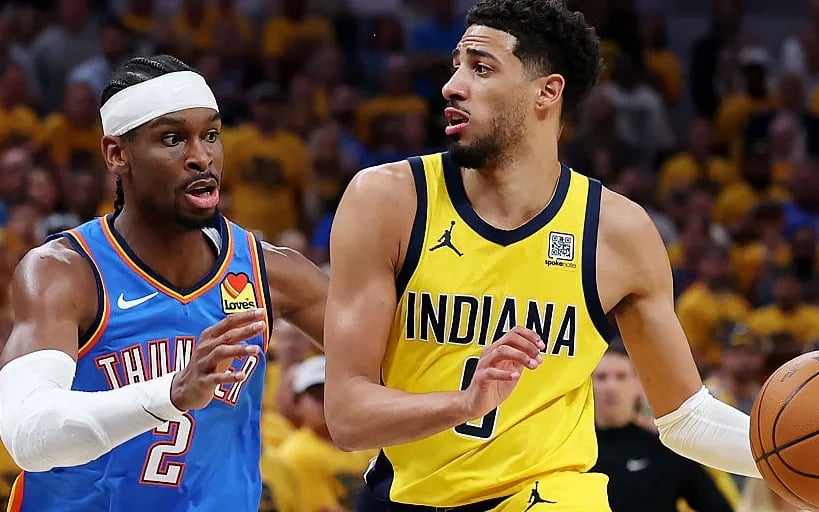As we reflect on this year’s NBA Finals, I would be remiss to not mention the postseason run of Indiana Pacers star Tyrese Haliburton, who went on one of those runs in the NBA playoffs that seemed improbable. The Pacers had a very pedestrian start to their season. But with great coaching from Rick Carlisle and All-NBA play from Haliburton, they entered the playoffs in rhythm. They won two series that fans didn’t expect them into in the ones against the Cleveland Cavaliers and the New York Knicks. They seemed poised to give the favorite Oklahoma City Thunder a run for their money, and they damn sure did. In what was a competitive series, Haliburton strained his calf in Game 5.
Strained calves are nothing to mess with
We now know, thanks to Kevin Durant in the 2019 NBA Finals, that strained calves are a precursor to ruptured Achilles tendons. In an era that is widely deemed soft by many, players are seeking to thwart that notion. They want to play hurt, and they want to be available for their teammates. This is doubly so when you consider the stakes. With an NBA championship within your grasp, you don’t want to allow anything to get in the way of that.
However, if you ask me, there are also high stakes in nursing potential career-altering injuries such as a strained calf. Now it seems by now, that at least in the national media, most supported Haliburton suiting up to play. To be fair, he played in Game 6, gave it what he had and finished the game without incident. We don’t know how he was feeling afterwards, but I’m sure there was a sense of optimism regarding his condition.
Game 7 showed us that Tyrese Haliburton clearly wasn’t out of the woods
In the first quarter of Game 7 of the NBA Finals, Haliburton’s Achilles ruptured. It left all who witnessed it feeling deflated for a time. To me, the injury was unfortunate. But I have to admit to you, I felt that there was a tangible chance that it could happen, and I wish he had decided against playing.
Very rarely are you the same after an Achilles tear
With that in mind, I thought Haliburton would consider his future in the moment he strained his calf. With that strain, you have a healthy chance of rupturing your Achilles. It serves as a warning that the area needs rest. Many say that you should take the chance in a championship scenario. But I only believe that if this were the Super Bowl. If this were one game to decide everything, I could gamble. But with what ended up as two additional games to go, not only did he not win this year, but Haliburton likely won’t play next year. When he does return to the court, he likely won’t be himself for yet another season.
If we ever get this year’s version of Haliburton again, I imagine it won’t be until possibly the 2027-28 season. By then, none of us can call the Indiana Pacers’ chances. However, if he never ruptured his Achilles as it was, he’d be suiting up next October, ready to make another long playoff run.
So, when should athletes play injured? I say that should be when no further damage can be done. But if there’s potential career-altering implications involved, I’d be smarter about things. After all, it’s said that it’s discretion that is the better part of valor. And boy, would some discretion have been useful right here.
